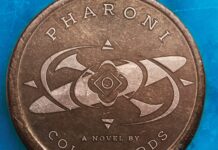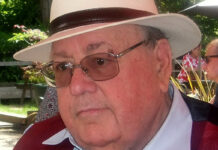Why do you always write about sex?
I have sometimes asked myself that very question. Can we say “often” instead of “always.” The obvious answer, which has some truth in it, would be that as a gay man who grew up in a traditionally homophobic household that was unusually frank about the body and how babies are made (my mother was an OB-GYN nurse), I was constantly repressing physical desire even as the source was openly discussed. So not by chance, once I came out of the proverbial closet, sex was somehow taboo and familiar at the same time. For me, for a long time, the mating rituals of flirtation, foreplay, frottage, and fornication had woven love and lust together into a single, inseparable string. Having shared that, I now wonder if intimacy, more than sex, is the common thread in my writing. Ultimately.
Seems debatable. Your current book, Periodic Boyfriends, sure has a lot of sex in it.
True. But in fact, I had planned there to be even more. My initial concept was to pen sonnets about 118 lovers, both longterm and one-night-stands. With a stress on the latter. Each poem would pair a different man with a different element from the periodic table then riff on where their properties overlapped. But by the time I got to “Aluminum” or thereabouts, I started to feel weird about the whole endeavor. Like is my life really nothing more than a series of carnal encounters? I don’t subscribe to the dictum “I fuck, therefor I am.” And so I ended up expanding my poetic parameters. I began to rethink of my male muses as previously potential, not just actual, sexual partners. The underlying theme became desire. That shift also led me to reconceptualize the chart’s two bottom rows.
How so?
Well, I always knew that the poems inspired by the actinides and lanthanides — which occupy a space below the main chart — should feel distinct. Since those two groupings of elements exist outside the primary table, I wanted the poems to likewise feel “removed.” So I let the lanthanides be gay men whom I’d known and loved but who had died. I figured that’s definitely once removed. Also with these poems, I allowed myself to break away from the traditional Petrarchan/Shakespearean rhyme schemes, to allow a new logic and unpredicted patterns to emerge. Surely, the rules change in the afterlife, right? So why not reflect that posthumous transformation in the form. As for the actinide poems, these are all inspired by men I’d known only online. Nearly all of Periodic Boyfriends was written during the darkest days of the pandemic so I spent a lot of time on apps like Scruff and Grindr. As far as sex and longing went, these texted relationships were my sad substitute for in-person contact. Considering the inherent informality of sex apps, I dropped end-rhymes completely.
Did you ever meet any of these men later?
Only one.
Did you have sex with him?
Not even a kiss. Because in the meantime, I was lucky enough to fall in love with someone outside that particular lineup of masturbatory fantasies. In the final stage of this book’s creation, I had discovered the until-then-elusive Element 119: Sokhosongium. He’s a man who doesn’t exist in the current collection because he merits more than a single ode. Yet he’s still a part of the book in a way. He took the photo that’s on the book’s back cover as well as the one that accompanies this interview. Need I be clearer? Credit: Sok Song.
Do the people in the book know you’ve written these poems?
A few do. Most don’t. I’m not particularly interested in naming names or making calls from a “voice in the past” but I will admit that “Chromium” owes a debt to Gertrude Stein as does, in a very different way, “Bismuth.” The titular poem “The Periodic Boyfriend” takes its cues — and capitalizations — from William Blake. “Sodium” got fuel from James Joyce. Additionally, I’d like to acknowledge other sonneteers beyond Shakespeare who were inspiring in their own ways, poets like Elizabeth Barrett Browning, Wanda Coleman, Claude McKay, and Edna St. Vincent Millay. Passionate for sure. Just not lovers of mine.
















